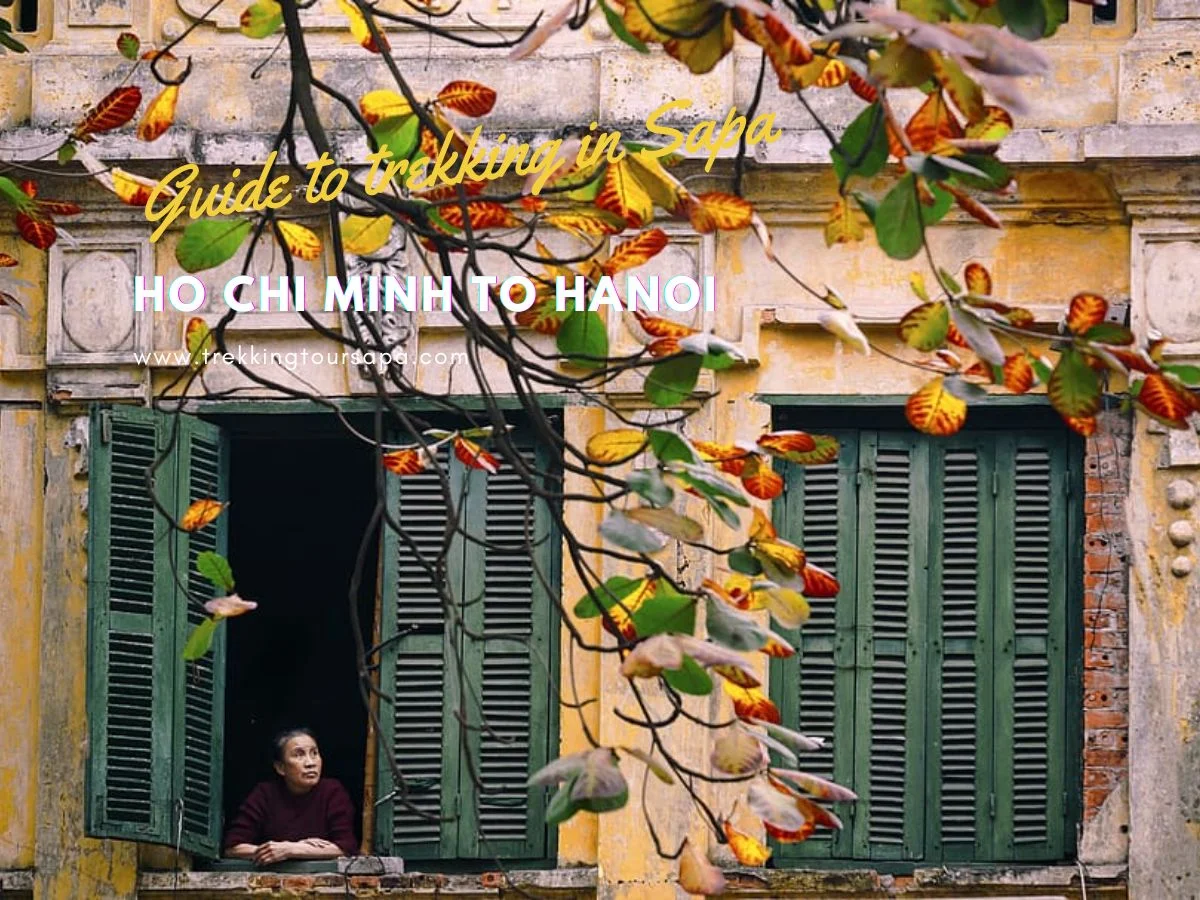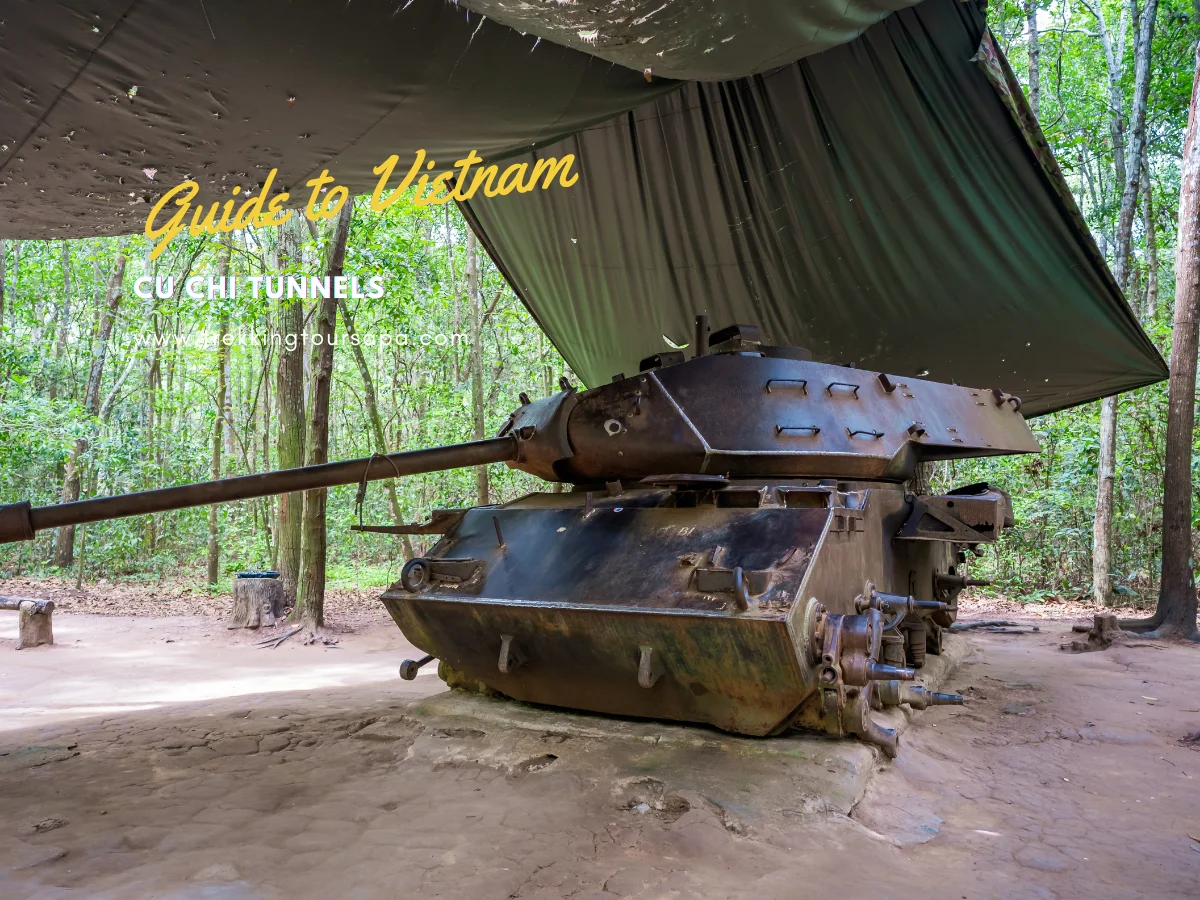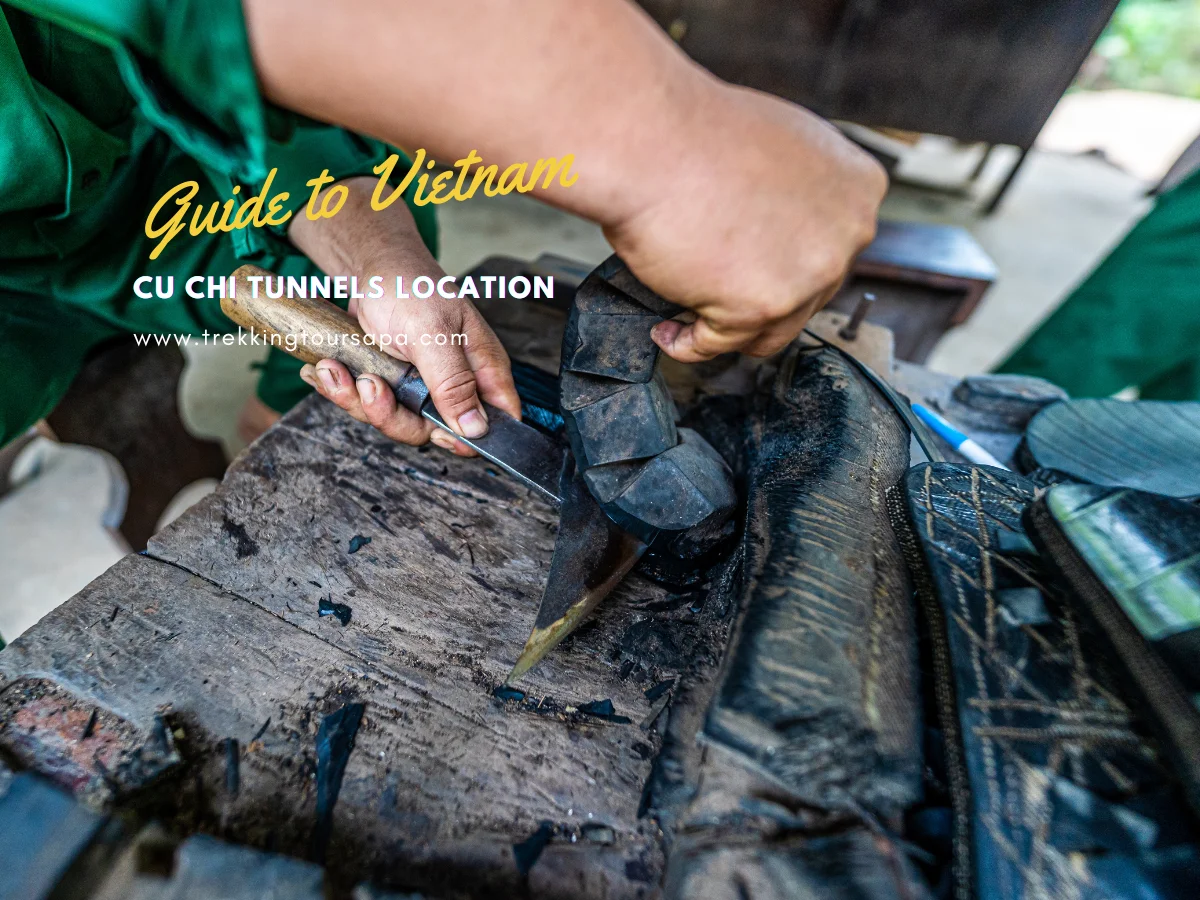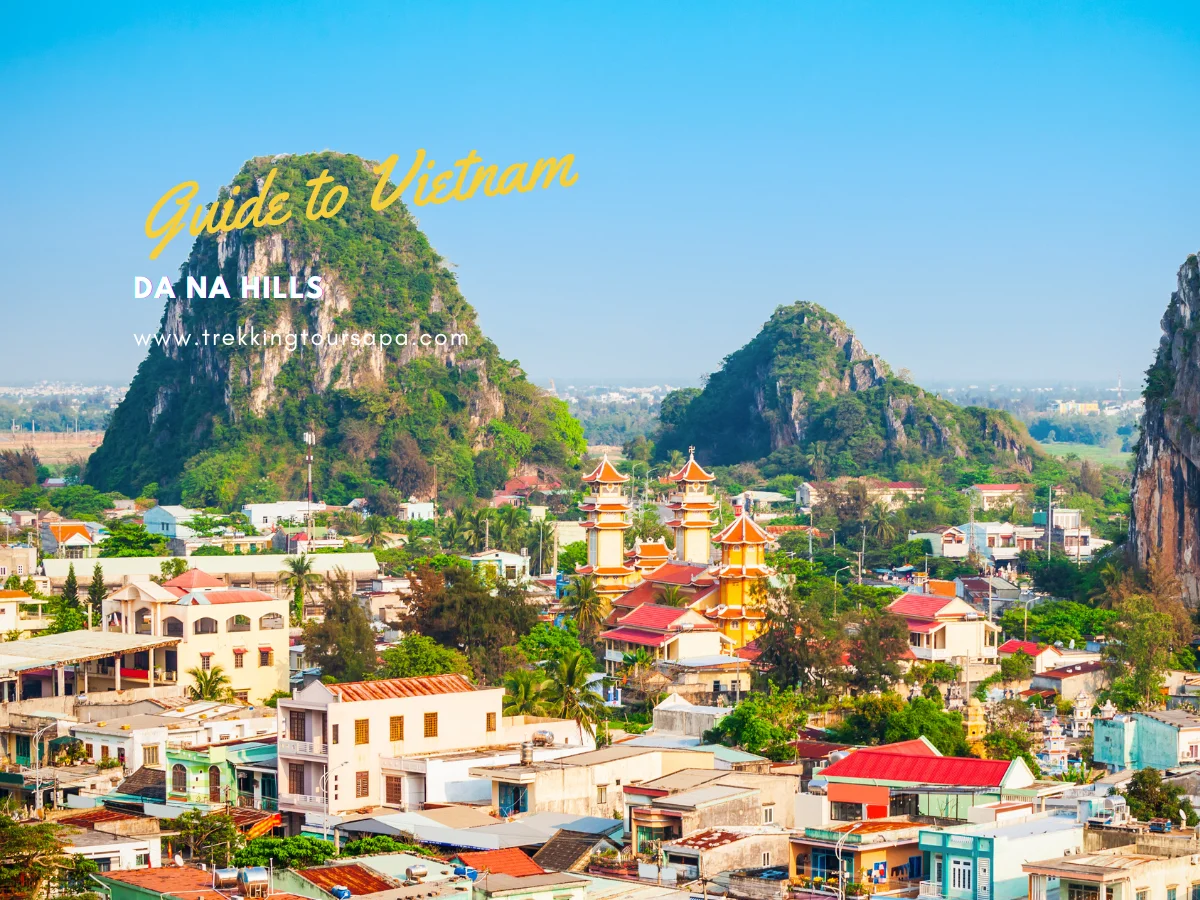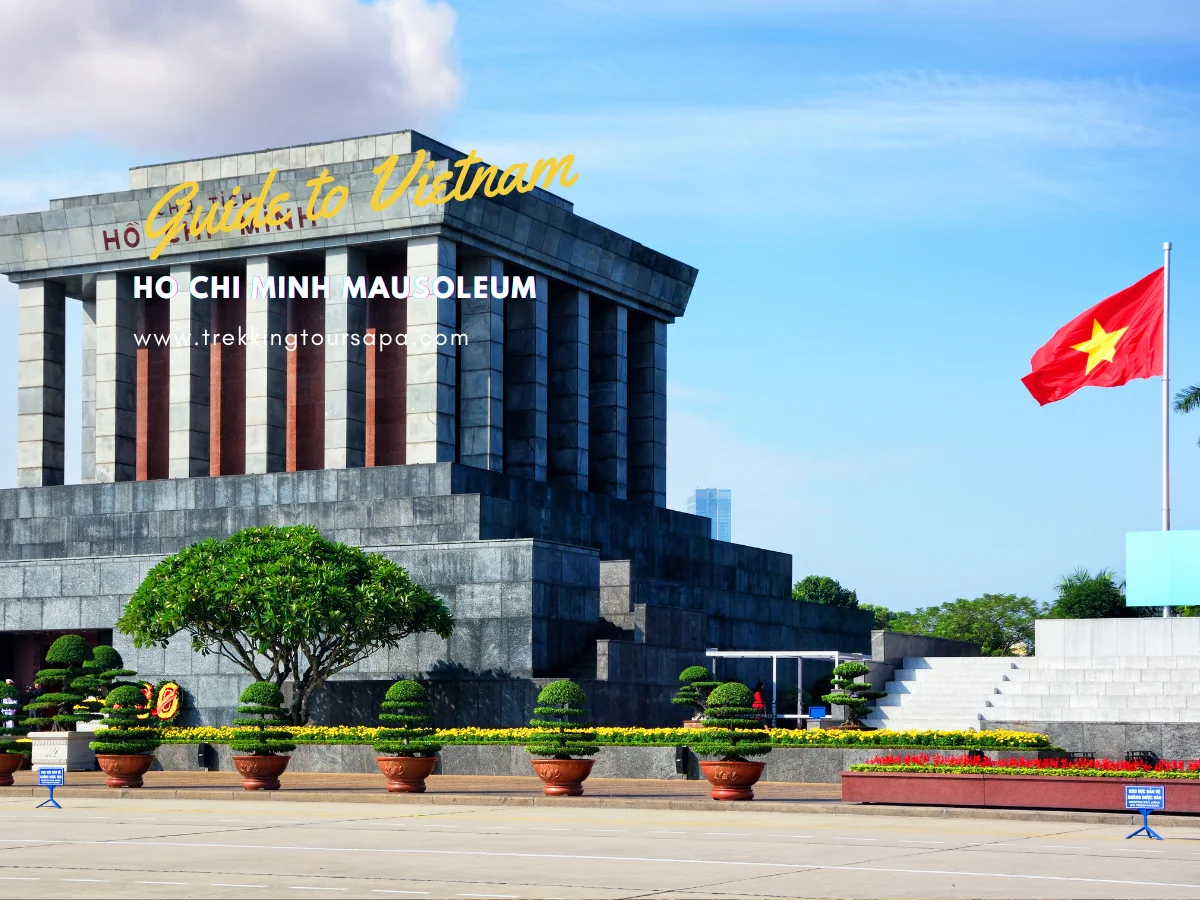If you’re a history buff with a thirst for adventure, there’s no better way to explore Vietnam than by traveling from Ho Chi Minh City to Hanoi. This journey takes you through some of the most historically significant regions in Vietnam and offers an opportunity to experience the country’s vibrant culture firsthand. Starting in bustling Ho Chi Minh City (formerly known as Saigon), travelers can soak up the city’s energy before heading north towards Hue, where they’ll discover a treasure trove of ancient temples and palaces that date back hundreds of years.
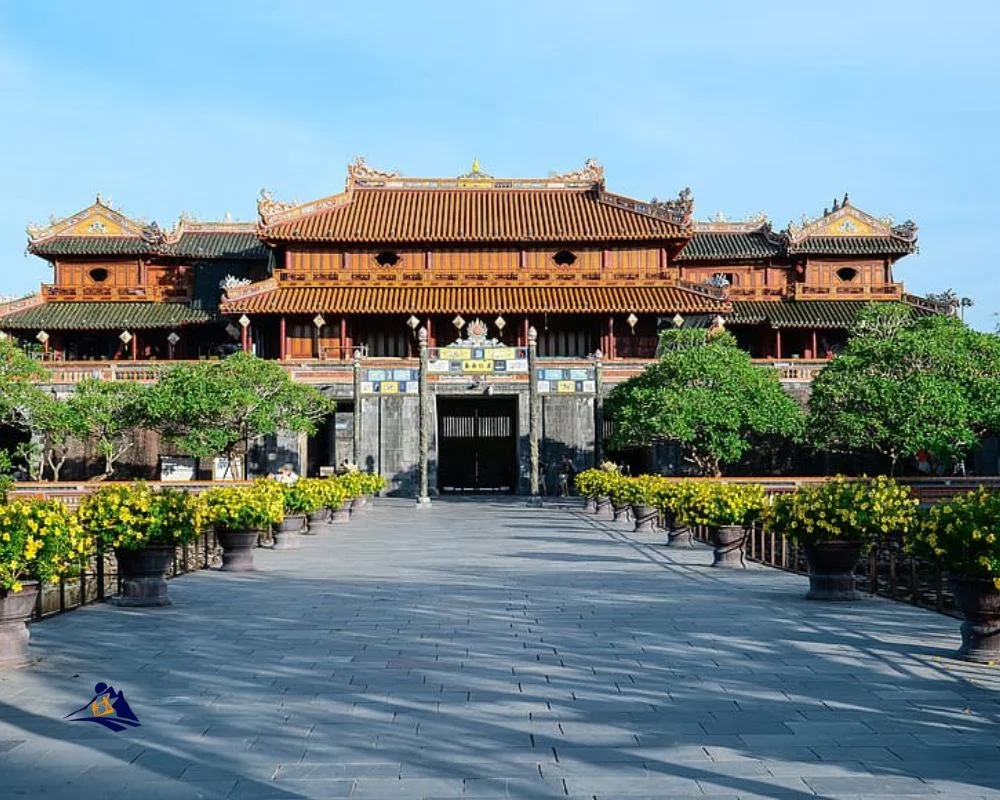
From there, it’s on to Hoi An, a small town that’s home to beautifully preserved buildings from the 15th century. As you continue your journey toward Hanoi, you’ll have the chance to explore stunning natural landscapes like Halong Bay and Sapa Valley while learning about the rich cultural heritage of this fascinating country.
Whether you’re seeking adventure or simply want to immerse yourself in Vietnamese history and culture, this trip is sure to leave a lasting impression on anyone who embarks upon it.
Table of Contents
ToggleExploring Ho Chi Minh City
Welcome to Ho Chi Minh City, a bustling metropolis that embodies the spirit of modern Vietnam. As you stroll through the streets, it’s hard not to feel overwhelmed by the sheer energy and vibrancy of this place. The city is a fascinating mix of old and new, where towering skyscrapers stand side-by-side with ancient pagodas and traditional markets.
One way to experience the true essence of Ho Chi Minh City is by sampling its street food. From sizzling stir-fries to steaming bowls of pho, countless culinary delights are waiting to be discovered around every corner. But don’t just take our word for it – ask any local and they’ll tell you that the best food in town can often be found at humble roadside stalls.
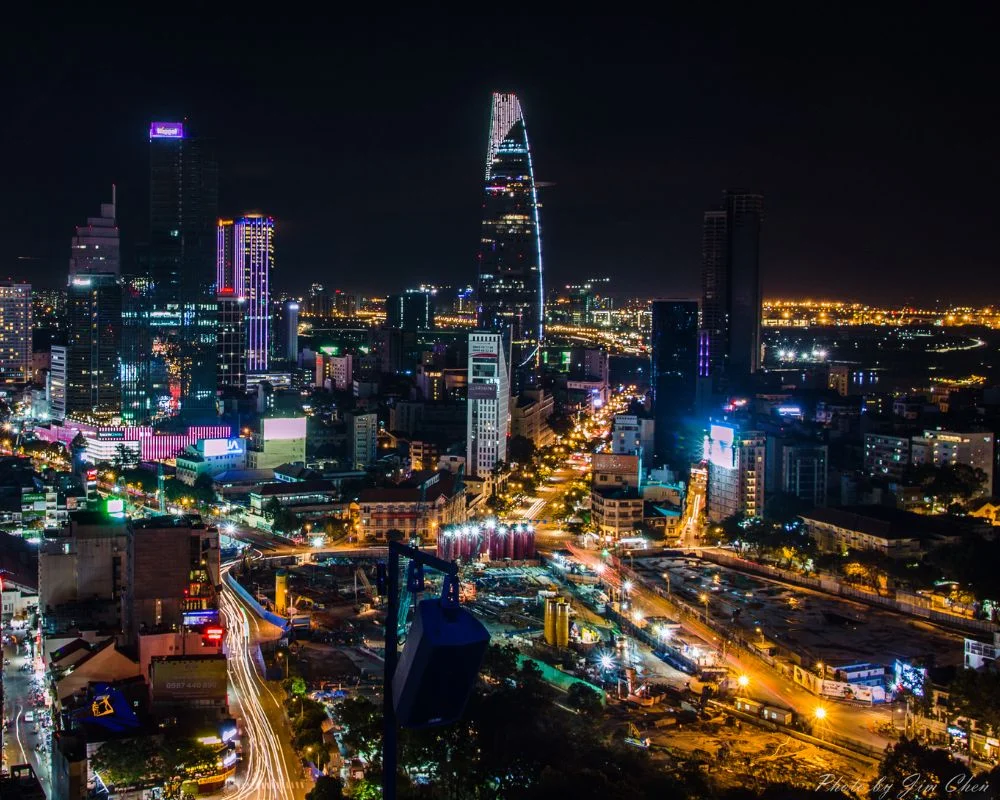
Be sure to try some banh mi, a delicious Vietnamese sandwich filled with meat, veggies, and spices that will leave your taste buds tingling with delight. And when you’re ready for a break from all the eating (if that’s even possible), why not spend an afternoon visiting one of the many museums in the city?
Learn about Vietnam’s rich history and culture as you explore exhibits featuring everything from ancient artifacts to contemporary art pieces. There truly is something for everyone here in Ho Chi Minh City!
As we move on to discovering historic Hue, let us bid farewell to this vibrant city while carrying memories of its sumptuous flavors and captivating sights forever etched in our minds.
Discovering Historic Hue
After exploring the bustling city of Ho Chi Minh, it’s time to head north toward the capital city of Hanoi. Along the way, you’ll pass by charming towns and cities that showcase Vietnam’s traditional customs and cultural influences.
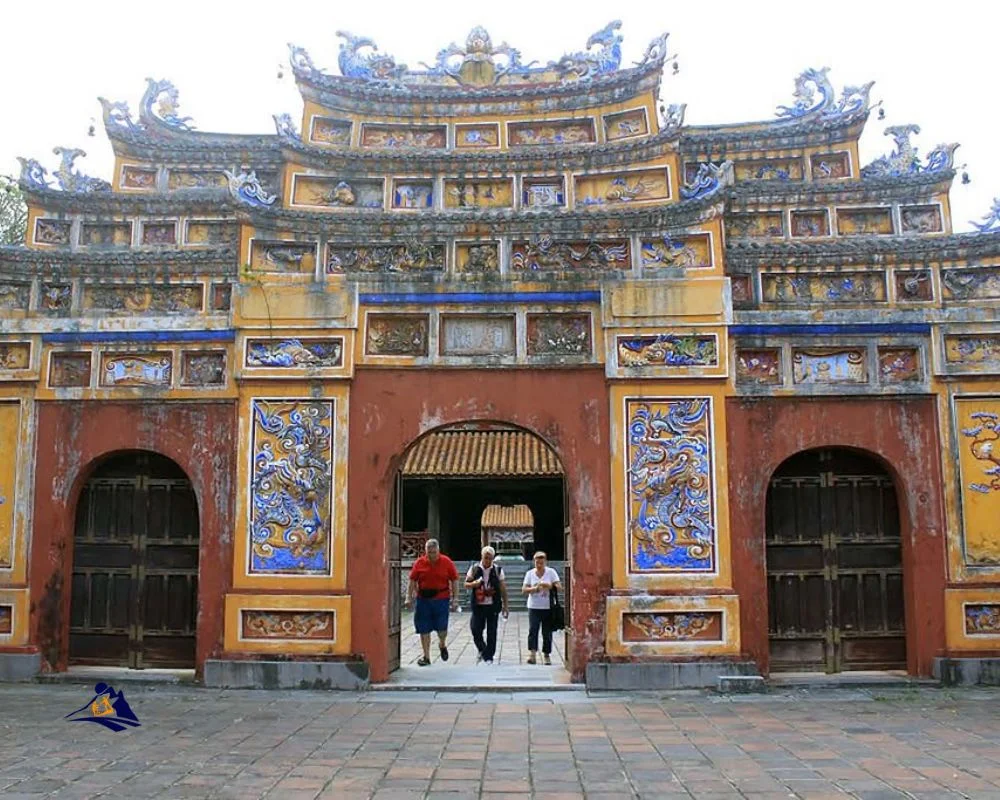
One such town is Hue, known for its imperial history and ancient citadel. Here are three must-see attractions in this historic destination:
- The Imperial City: This UNESCO World Heritage Site was once home to emperors during the Nguyen Dynasty. Today, visitors can explore the intricate architecture and gardens within the walls of this impressive fortress.
- Thien Mu Pagoda: One of Hue’s most iconic landmarks, this seven-story pagoda overlooks the Perfume River and features stunning views of the surrounding mountains.
- Tombs of the Emperors: Located just outside of Hue, these elaborate tombs were built for various emperors during their reigns. Each tomb reflects a unique style and personality, making them a fascinating glimpse into Vietnamese history.
As you continue your journey towards Hanoi, make sure to stop and appreciate all that Hue has to offer before moving on to your next adventure – sightseeing in Hoi An.
Sightseeing In Hoi An
As the sun rises over Hoi An, it’s hard not to feel like you’ve stepped into a painting. The ancient town is filled with colorful lanterns and winding streets that transport visitors back in time. It’s no wonder why this UNESCO World Heritage site has become such a popular destination for tourists from all around the world.
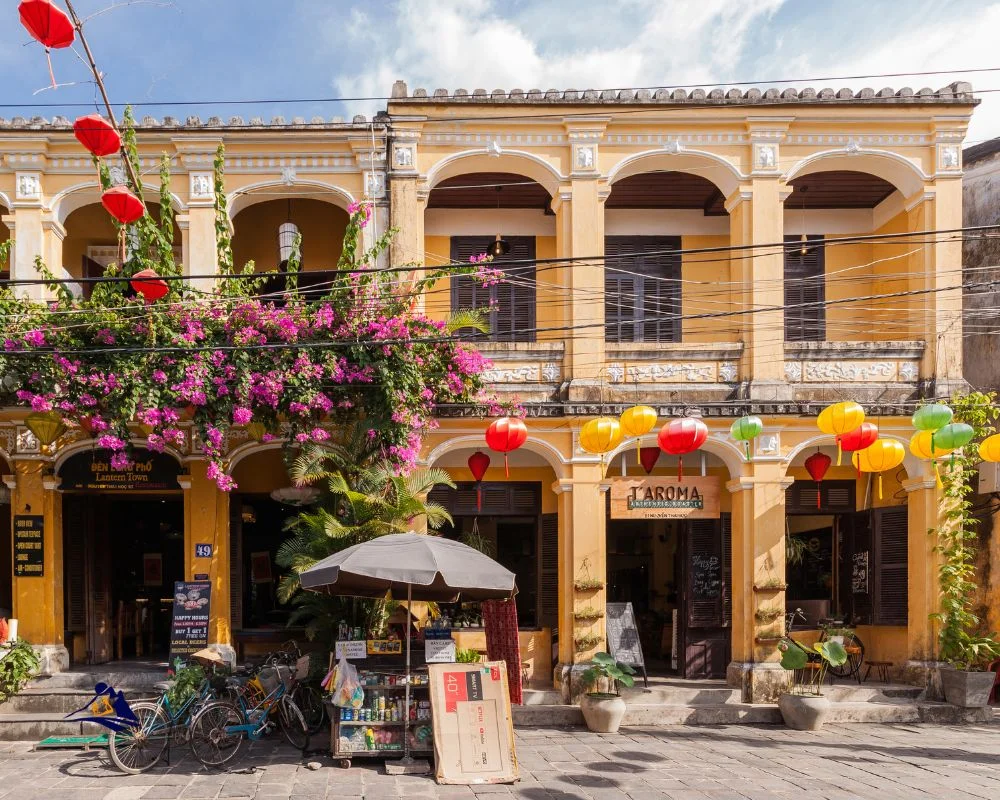
But there’s more to Hoi An than just its picturesque scenery – this town is also known for its traditional craftsmanship. One of the most famous crafts in Vietnam is pottery, and Hoi An offers visitors the chance to witness firsthand how it’s made. Take a stroll through one of the many pottery workshops and watch as skilled artisans mold clay into beautiful works of art. Don’t forget to take home your very own piece of Vietnamese pottery as a souvenir!
| Artisan | Craft | Location |
|---|---|---|
| Pham Van Tuyen | Pottery | Thanh Ha Village |
| Nguyen Thi Thu Huong | Lantern Making | Old Town Market |
| Tran Quoc Hoan | Silk Weaving | Cam Nam Village |
| Le Ngoc Minh | Wood Carving | Kim Bong Carpentry Village |
| Nguyen Dang Vu Tuong | Calligraphy Writing | Japanese Covered Bridge |
As you wander through Hoi An, be sure to take note of these talented individuals who have kept their craft alive for generations. And when you’re ready to move on from this charming town, head north towards Halong Bay – where even more beauty awaits.
Taking In The Beauty Of Halong Bay
As you make your way from Ho Chi Minh to Hanoi, there is one destination that should be a must-see on your list: Halong Bay. This UNESCO World Heritage Site boasts some of the most breathtaking scenery in all of Vietnam.
Imagine cruising through crystal clear waters and taking in the majestic limestone cliffs jutting out of the sea. You’ll feel as if you’ve stepped into another world. But it’s not just the natural beauty that draws people to Halong Bay. The bay is also home to traditional fishing communities that have been living off these waters for generations.
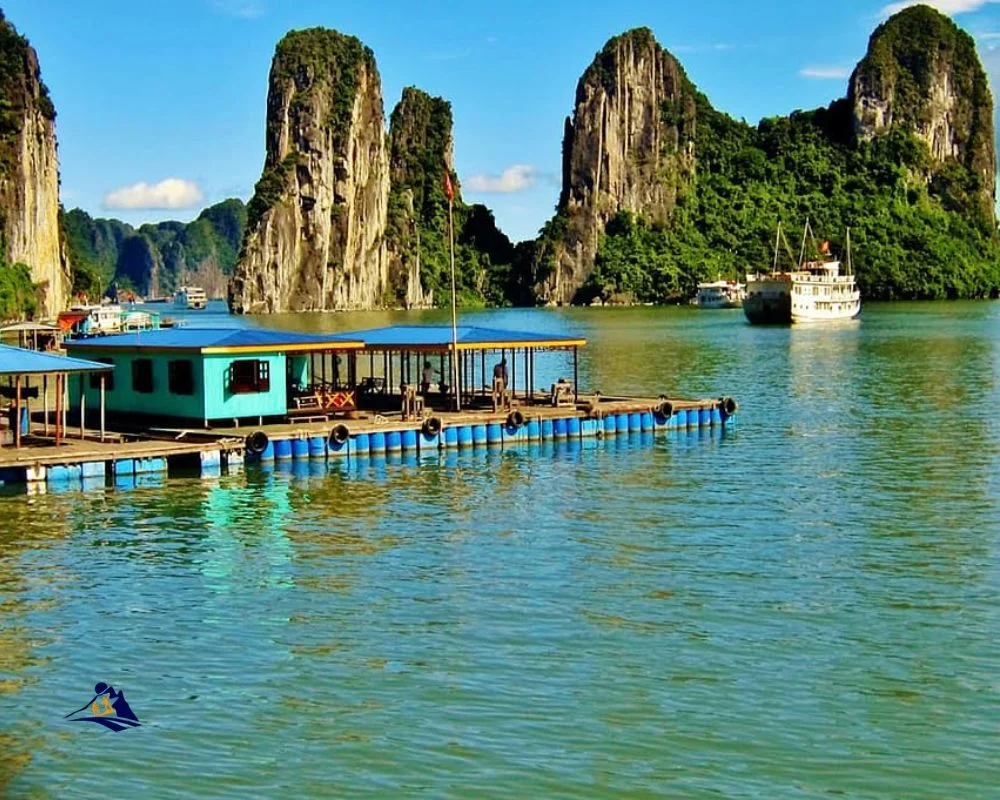
Take a closer look at their way of life by joining them on a local fishing boat and learning how they catch fish using only their hands or simple nets. And what better way to end an unforgettable day than with a delicious seafood dinner prepared by locals right on board?
Nestled among towering mountains and emerald green rice paddies lies Sapa Valley, where gazing at the rice terraces will leave you speechless. But before we get ahead of ourselves, let’s first explore the charming town of Sapa itself…
Gazing At The Rice Terraces In Sapa Valley
I’m sure you’ve heard of the picturesque rice terraces in Sapa Valley – there’s nothing quite like it. But did you know that the area has a rich ancient history? Let’s explore that and the unique rice farming techniques used here, as well as the tourist attractions that draw people in. It’s a fascinating destination that’s worth exploring.
Ancient History Of Sapa Valley
As you gaze at the magnificent rice terraces in Sapa Valley, it’s hard to imagine that this area has a rich ancient history dating back to over 10,000 years ago. The valley was home to various ethnic groups who developed their own unique cultures and traditions, heavily influenced by cultural influences from China and Southeast Asia.

However, during Vietnam’s colonial past under French occupation, the indigenous people of Sapa were suppressed and forced into labor by the colonizers. Despite this dark period in its history, Sapa today is a vibrant tapestry of diverse cultures with many festivals and traditional practices still being observed.
Exploring the ancient history of Sapa will give you a deeper appreciation of how far this region has come since its colonial past.
Rice Farming Techniques
As you gaze at the magnificent rice terraces in Sapa Valley, it’s impossible not to marvel at the ingenuity of the ancient farming techniques used by the ethnic groups who called this region home. Their mastery of water irrigation and crop rotation enabled them to cultivate rice on these steep slopes for thousands of years. These traditional methods are still being practiced today and contribute greatly to Vietnam’s agricultural industry.

Understanding how these techniques were developed and implemented is crucial to appreciate the rich cultural history that has shaped Sapa into what it is today.
Tourist Attractions In Sapa Valley
As you take in the breathtaking views of the rice terraces in Sapa Valley, it’s hard not to feel drawn to exploring more of this magnificent region. Luckily for adventurous travelers, there are plenty of trekking trails that lead through the lush forests and past traditional villages inhabited by ethnic tribes.
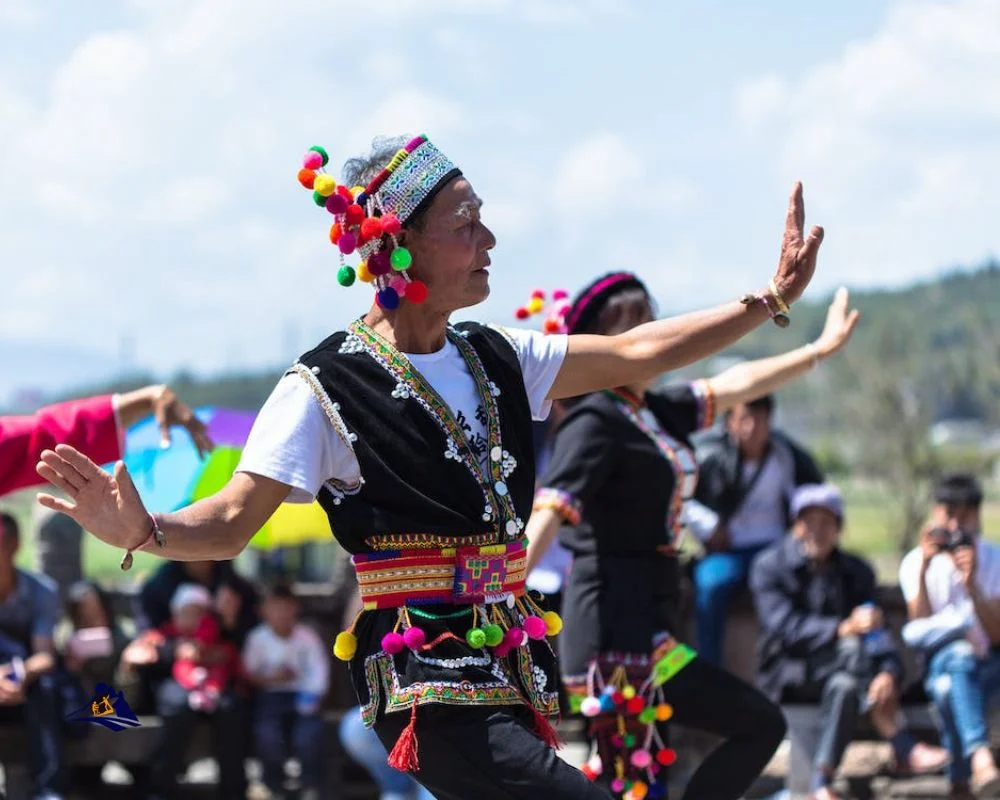
These tours offer a unique opportunity to immerse yourself in local culture while experiencing some of the most stunning scenery Vietnam has to offer. From wandering through bustling markets filled with handicrafts and souvenirs to savoring delicious local cuisine, Sapa Valley is a destination like no other.
So if you’re looking for an escape from the hustle and bustle of city life, why not consider embarking on an adventure in one of Vietnam’s most captivating regions?
Experiencing The Local Culture
As you travel from Ho Chi Minh to Hanoi, it is impossible not to be fascinated by the diverse cultures of Vietnam. One way to immerse yourself in these cultures is through socializing with locals. Vietnamese people are known for their warm hospitality and friendliness towards foreigners. By interacting with them, you can learn about traditional customs that have been passed down through generations.
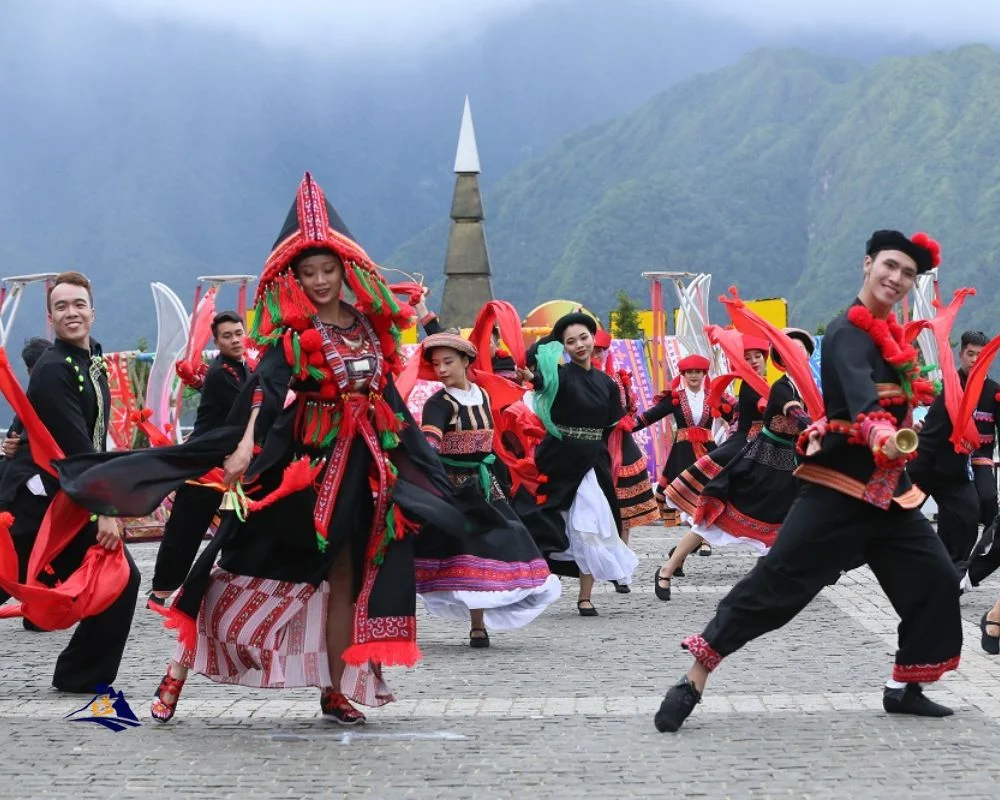
From bustling cities to remote villages, each region has its unique customs and traditions. For instance, in some regions, weddings are celebrated over several days while others prefer a simple ceremony. Similarly, different regions have varying beliefs regarding ancestor worship and death rituals.
Socializing with locals provides an opportunity to understand these traditions better and gain insights into what makes Vietnam such a culturally rich country.
Indulging in the cuisine is another excellent way to experience local culture, which we will explore further in the next section.
Sapa 1 Day Tours
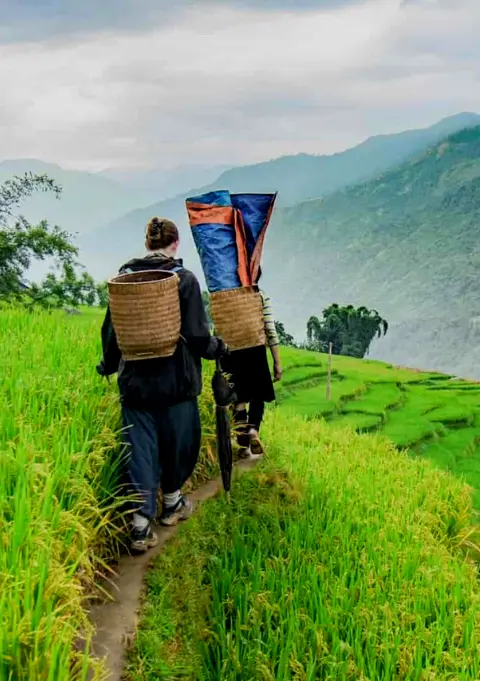
- 1 day experience
- Moderate to challenging
- Cultural immersion & active adventure
- Rice fields, valleys & villages
- Private tours
- Vegan-friendly
Sapa 2 Day Tours
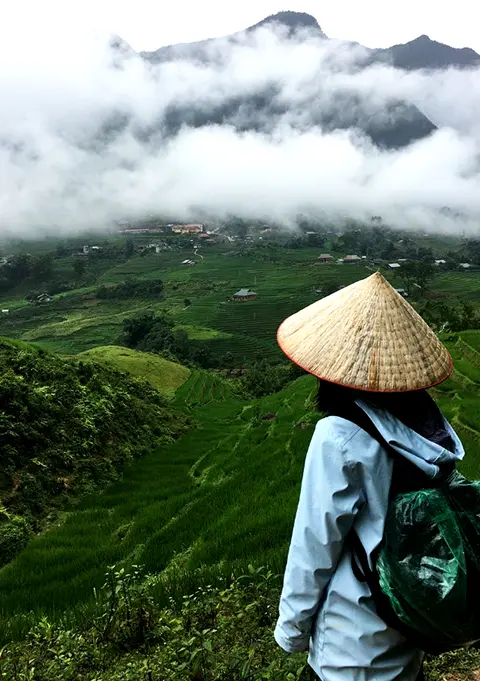
- 2 days 1 night experience
- Moderate to challenging
- Cultural immersion & active adventure
- Mountains, valleys, rice fields and villages
- Private tours
- Vegan-friendly
Sapa 3 Day Tours
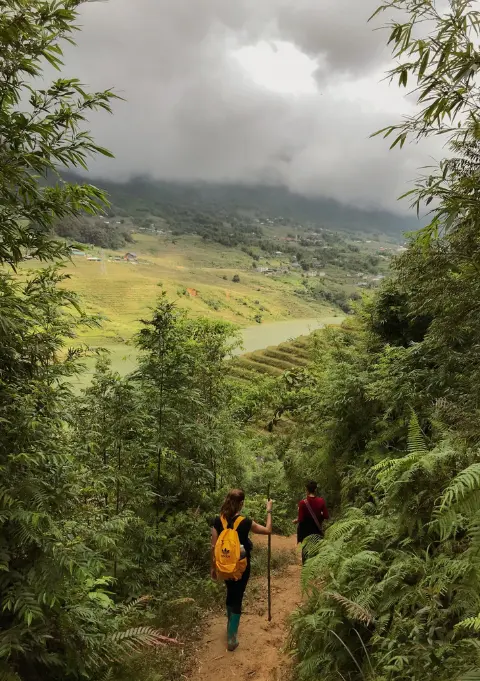
- 3 days 2 night experience
- Moderate to challenging
- Cultural immersion & active adventure
- Mountains, valley, rice fields & villages
- Private tours
- Vegan-friendly
Sapa 4 Day Tours
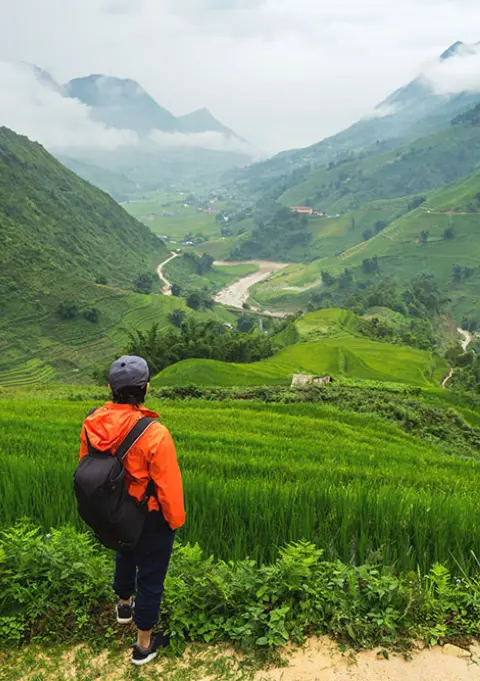
- 4 days 3 night experience
- Moderate to challenging
- Cultural immersion & active adventure
- Mountains, valleys, rice fields & villages
- Private tours – Less Touristic
- Vegan-friendly
Indulging In The Cuisine
After a long day of exploring the vibrant cities of Ho Chi Minh and Hanoi, indulging in the local cuisine is something you should experience. Vietnam has an incredibly rich culinary history, with influences from Chinese and French cuisines blending to create unique dishes that will leave you craving for more.
One way to immerse yourself in Vietnamese culture is by tasting street food. In both Ho Chi Minh and Hanoi, countless food vendors are lining the streets offering delicious snacks such as banh mi sandwiches, pho noodle soup, and fresh spring rolls. These dishes may seem simple at first glance but their flavors are truly complex – it’s no wonder they’re some of the most popular foods in Vietnam!
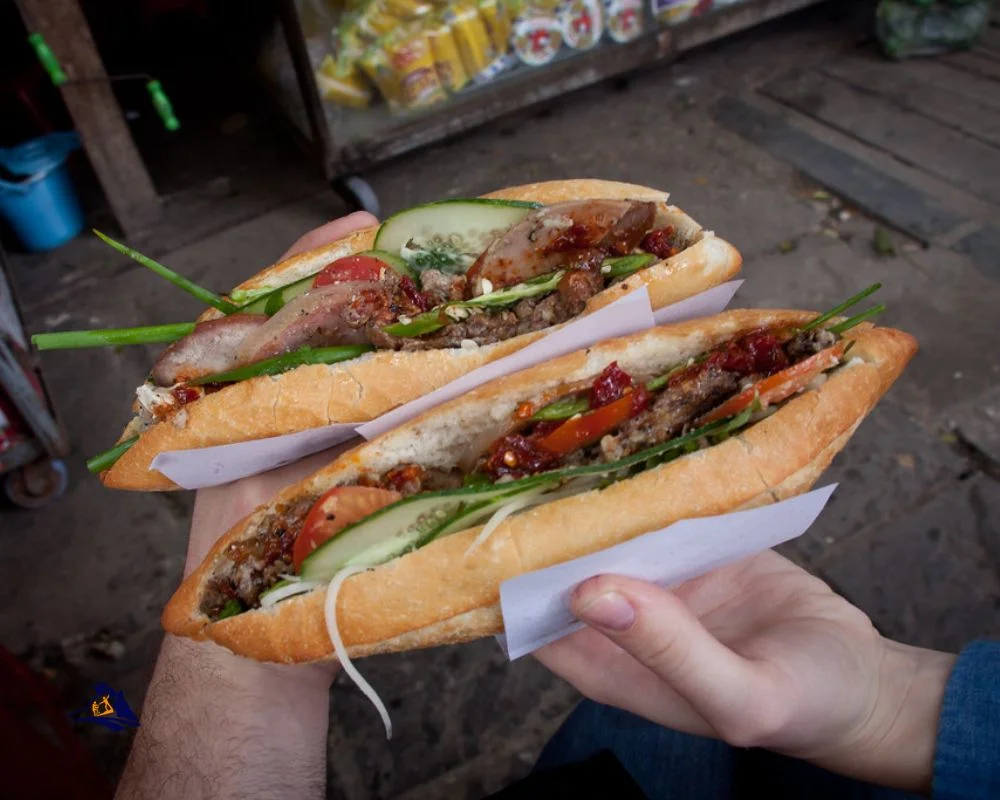
For those who want to try something different, head over to one of the many night markets where you can sample exotic delicacies like grilled squid or durian fruit. Trust me when I say that your taste buds won’t regret it!
When enjoying local dishes in Vietnam, be sure not to miss out on some staples such as bun cha (grilled pork meatballs served with vermicelli noodles) and com tam (broken rice topped with grilled meats). These dishes are so beloved by locals that they’ve become synonymous with traditional Vietnamese food all around the world.
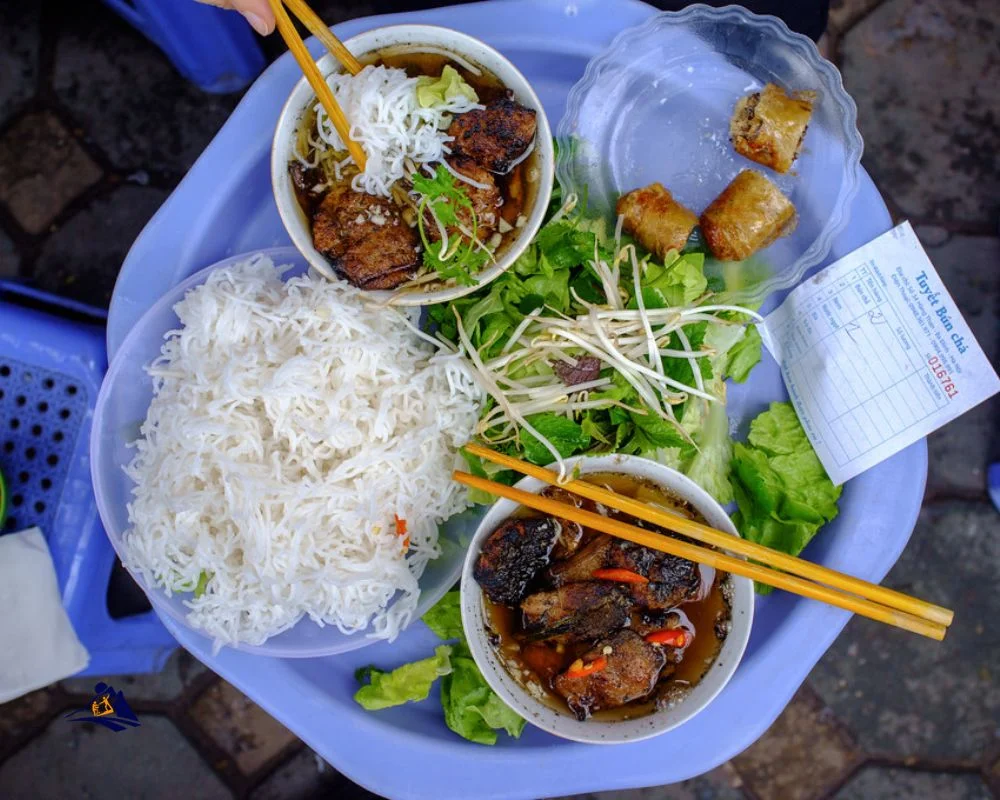
Don’t forget to wash them down with a glass of refreshing sugarcane juice or bia hoi (fresh beer)! With every bite, you’ll understand why Vietnamese cuisine is considered one of the best in Asia.
As tempting as it might be to stay forever eating your way through Vietnam’s diverse culinary offerings, there’s still more to explore beyond just its amazing food scene. So pack up your bags and get ready for our next adventure: relaxing at the beach!
Sapa 1 Day Tours

- 1 day experience
- Moderate to challenging
- Cultural immersion & active adventure
- Rice fields, valleys & villages
- Private tours
- Vegan-friendly
Sapa 2 Day Tours

- 2 days 1 night experience
- Moderate to challenging
- Cultural immersion & active adventure
- Mountains, valleys, rice fields and villages
- Private tours
- Vegan-friendly
Sapa 3 Day Tours

- 3 days 2 night experience
- Moderate to challenging
- Cultural immersion & active adventure
- Mountains, valley, rice fields & villages
- Private tours
- Vegan-friendly
Sapa 4 Day Tours

- 4 days 3 night experience
- Moderate to challenging
- Cultural immersion & active adventure
- Mountains, valleys, rice fields & villages
- Private tours – Less Touristic
- Vegan-friendly
Relaxing At The Beach
After indulging in the mouth-watering cuisine of Vietnam, it’s time to unwind and relax at one of the many stunning beaches this country has to offer. From Ho Chi Minh To Hanoi, a direct flight to Da Nang will take you to some of the most picturesque beaches in Central Vietnam.
To make the most out of your beach vacation, try practicing relaxing techniques like meditation or yoga on the sand while listening to the soothing sound of waves crashing onto the shore. Or if you’re more into physical activities, there are plenty of options such as kayaking, surfing, and even kiteboarding for those who want an adrenaline rush. And let’s not forget about beach volleyball for those who enjoy friendly competition with friends and family!

However, the way you choose to spend your day by the beach, don’t forget to hydrate and protect yourself from sun damage. Take breaks under shaded areas or bring along an umbrella. With so much fun happening around you, it’s easy to lose track of time but always remember that safety comes first! After all, we wouldn’t want any unnecessary accidents ruining our well-deserved break by the sea.
As enjoyable as the beach is though, exploring Hanoi’s bustling markets should be on your itinerary before leaving Vietnam. These colorful streets filled with authentic Vietnamese goods truly embody their culture and history.
Sapa 1 Day Tours

- 1 day experience
- Moderate to challenging
- Cultural immersion & active adventure
- Rice fields, valleys & villages
- Private tours
- Vegan-friendly
Sapa 2 Day Tours

- 2 days 1 night experience
- Moderate to challenging
- Cultural immersion & active adventure
- Mountains, valleys, rice fields and villages
- Private tours
- Vegan-friendly
Sapa 3 Day Tours

- 3 days 2 night experience
- Moderate to challenging
- Cultural immersion & active adventure
- Mountains, valley, rice fields & villages
- Private tours
- Vegan-friendly
Sapa 4 Day Tours

- 4 days 3 night experience
- Moderate to challenging
- Cultural immersion & active adventure
- Mountains, valleys, rice fields & villages
- Private tours – Less Touristic
- Vegan-friendly
So pack up those souvenirs and get ready for some haggling because the next stop: is Hanoi!
Exploring The Markets Of Hanoi
As you explore the bustling streets of Hanoi, it’s hard not to be captivated by the vibrant markets that are scattered throughout the city. The sights and sounds of these markets offer a glimpse into the heart and soul of Vietnamese culture, making them an absolute must-visit for anyone who wants to experience Vietnam in all its glory.
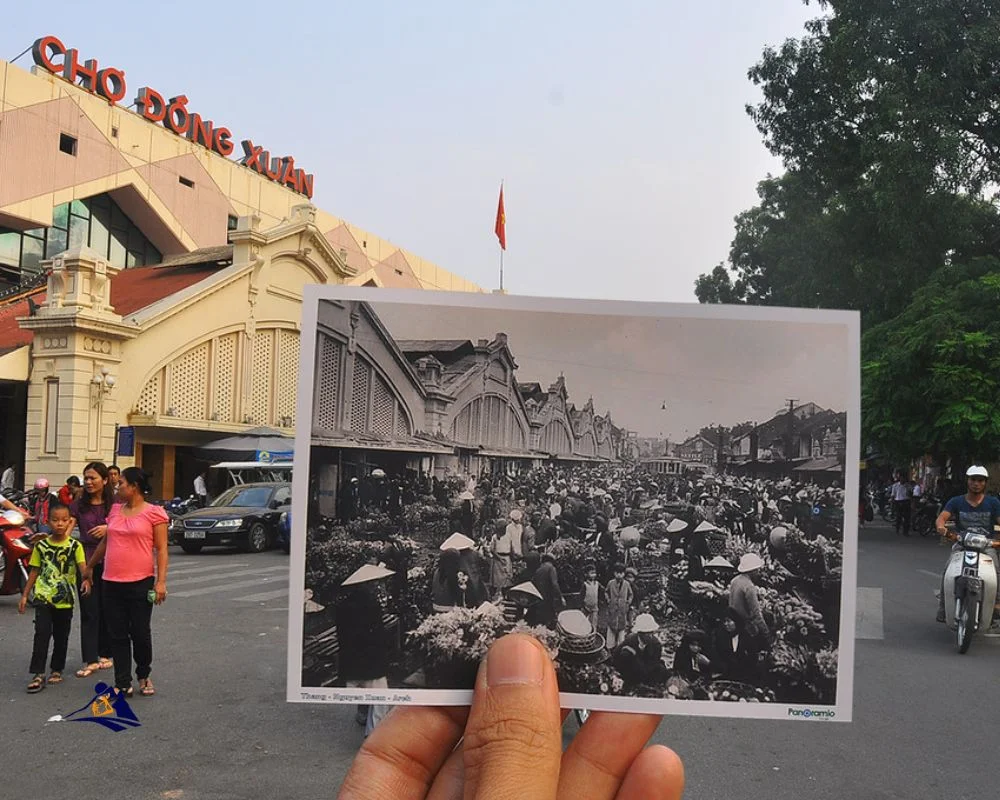
For bargain hunters, there is no better place than Dong Xuan Market or Cho Hom Market where you can find everything from clothes to electronics at incredibly low prices. But it’s not just about shopping; street food is also a major drawcard here, with vendors offering up some of Vietnam’s most delicious cuisine. Indulge in traditional dishes like pho or bun cha as you wander through the market stalls, taking in all the excitement around you. Make sure to try out some exotic fruits like dragon fruit or rambutan while you’re at it! Check out our table below which highlights some popular items found in Hanoi markets so that you can make sure to get your hands on your favorites:
| Item | Description |
|---|---|
| Ao Dai | Traditional long dresses are worn by women |
| Conical Hat | Iconic hat made of palm leaves |
| Lacquerware | Intricate handcrafted decorative pieces |
| Silk Scarf | Soft and luxurious scarf made from silk |
| Bamboo Products | Eco-friendly products such as baskets and utensils |
Next up: capturing lasting memories with a visit to one of Hanoi’s famous landmarks.
Sapa 1 Day Tours

- 1 day experience
- Moderate to challenging
- Cultural immersion & active adventure
- Rice fields, valleys & villages
- Private tours
- Vegan-friendly
Sapa 2 Day Tours

- 2 days 1 night experience
- Moderate to challenging
- Cultural immersion & active adventure
- Mountains, valleys, rice fields and villages
- Private tours
- Vegan-friendly
Sapa 3 Day Tours

- 3 days 2 night experience
- Moderate to challenging
- Cultural immersion & active adventure
- Mountains, valley, rice fields & villages
- Private tours
- Vegan-friendly
Sapa 4 Day Tours

- 4 days 3 night experience
- Moderate to challenging
- Cultural immersion & active adventure
- Mountains, valleys, rice fields & villages
- Private tours – Less Touristic
- Vegan-friendly
Capturing Lasting Memories
As you make your way from Ho Chi Minh to Hanoi, there’s no doubt that the stunning scenery and rich history will leave a lasting impression on you. But it’s important to capture those memories so they can be cherished for years to come.
One of the best ways to do this is through souvenir shopping. Vietnam is known for its unique handicrafts, such as lacquerware, silk products, and pottery. These items are not only beautiful but also tell a story about the country’s culture and traditions. When shopping for souvenirs, take some time to learn about the significance behind each item and choose ones that hold personal meaning for you. This way, every time you look at them in your home, they’ll bring back fond memories of your trip.
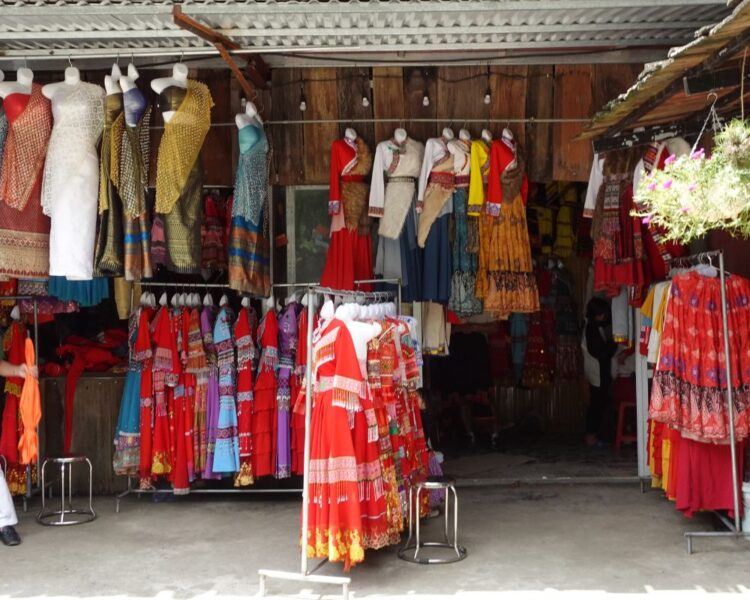
Of course, one of the most popular ways to capture memories is through photography. Vietnam offers endless opportunities for stunning shots – from bustling city streets to serene countryside landscapes.
To make sure you get the best photos possible, here are some tips:
1) Take advantage of natural light by shooting during golden hour (the hour after sunrise or before sunset).
2) Don’t be afraid to experiment with different angles and perspectives. Try getting low to the ground or using reflections in water for interesting compositions. And remember – sometimes the best photos are captured when you least expect them!
When it comes to capturing lasting memories in Vietnam, souvenir shopping and photography go hand-in-hand. By taking home meaningful souvenirs and breathtaking photos, you’ll always have a piece of this incredible country with you wherever you go.
Ho Chi Minh To Hanoi Frequently Asked Questions
What Is The Best Way To Travel From Ho Chi Minh City To Hanoi Tour?
Embarking on a journey between two different cities in Vietnam is more than just traveling. It’s about immersing yourself in the culture, learning from their unique history and traditions, and experiencing their way of life firsthand.
As someone who specializes in Vietnamese history and culture, I know that to truly enjoy this adventure, one must not only consider transportation but also accommodation options available along the way. Cultural differences may come into play when choosing where to stay, but it’s important to embrace these dissimilarities as part of the experience. For those with a subconscious desire for freedom, there are plenty of choices available ranging from hostels to luxury hotels – all catering to various budgets and preferences.
Ultimately, whether you choose to travel by plane or train, bus or motorbike; what matters most is how you appreciate every moment of your journey while gaining insight into the beautiful country that is Vietnam.
How Much Does It Cost To Travel From Ho Chi Minh City To Hanoi?
Train travel is a popular way to explore Vietnam, especially for those who want to experience the country’s rich history and culture. The cost of train tickets varies depending on the distance and class of service selected. For example, traveling from Ho Chi Minh City to Hanoi by train can range from 1,200,000 VND (USD 52) for a standard cabin to 3,300,000 VND (USD 143) for a luxury sleeper cabin.
Regardless of your budget or preferences, there are plenty of tourist attractions along the way that will make your journey worthwhile. From bustling cities like Hue and Da Nang to serene landscapes such as Halong Bay and Sapa Valley, you’ll have plenty of opportunities to immerse yourself in Vietnamese life and culture while exploring this beautiful country.
Are There Any Safety Concerns When Traveling From Ho Chi Minh City To Hanoi?
When traveling to a new country, it’s common to experience culture shock and language barriers. This can be especially true when visiting Vietnam, where customs and traditions may differ greatly from what you’re used to at home. However, don’t let these concerns deter you from exploring this beautiful country. While safety should always be a priority when traveling in any foreign land, the Vietnamese people are known for being friendly and welcoming to visitors.
As a freelance writer specializing in Vietnamese history and culture, I encourage you to embrace the adventure of travel and immerse yourself in all that Vietnam has to offer – from bustling cities like Ho Chi Minh City (Saigon) to the historic capital of Hanoi.
With an open mind and willingness to learn about the local way of life, your journey through Vietnam is sure to be both educational and enriching for anyone with a subconscious desire for freedom.
What Is The Weather Like In Hanoi Compared To Ho Chi Minh City?
Hanoi and Ho Chi Minh City are two vibrant cities in Vietnam with notable cultural differences. The weather is another aspect that sets them apart, as Hanoi boasts cooler temperatures compared to the warm climate of Ho Chi Minh City. When it comes to cultural attractions, both cities have a lot to offer. Hanoi has preserved its rich history through ancient temples and museums dedicated to Vietnamese culture, while Ho Chi Minh City reflects a more modern approach with skyscrapers and bustling markets.
As a freelance writer specializing in Vietnamese history and culture, I highly recommend experiencing both cities’ unique offerings for an unforgettable journey filled with adventure and cultural immersion. So why not break free from your routine and explore these gems?
What Is The Local Currency In Hanoi And How Can I Exchange Money?
If you’re planning a trip to Hanoi, it’s important to understand the local currency and how to exchange money. The official currency in Vietnam is the Vietnamese Dong (VND), which has been steadily gaining value over time. It’s recommended that you exchange your money at banks or authorized exchange centers for better rates and security.
When exchanging foreign currencies, be sure to check the current exchange rates beforehand to avoid being ripped off by dishonest vendors. Additionally, keep in mind that some hotels and restaurants may accept USD, but it’s always best to have VND on hand for small transactions.
Remember that understanding currency conversion is crucial when traveling abroad and can help make your journey smoother overall.
Conclusion
When it comes to traveling from Ho Chi Minh City to Hanoi, there are a few options available depending on your budget and time constraints. The most popular way is by plane, with multiple flights departing daily from both cities. Prices can vary but expect to pay around $50-100 USD for a one-way ticket.
Safety concerns should always be taken seriously when traveling in any foreign country, but Vietnam remains relatively safe for tourists. However, it’s important to take precautions such as keeping valuable items secure and being aware of your surroundings at all times. When it comes to weather, the two cities have distinct differences. While Ho Chi Minh City has hot and humid tropical weather year-round, Hanoi experiences four seasons with colder winters and milder summers. It’s worth packing accordingly if you plan on visiting both cities during your trip.
As for currency exchange, the local currency in Hanoi is the Vietnamese dong (VND). There are many banks and money changers throughout the city where you can exchange cash or withdraw using ATMs. Just make sure to check the current exchange rates before exchanging money. Traveling from Ho Chi Minh City to Hanoi allows visitors an opportunity to experience different cultures within Vietnam. From bustling city life in Ho Chi Minh City to historic landmarks in Hanoi, each destination offers unique insights into the country’s rich history and culture.
With proper planning and research, anyone can enjoy a safe and unforgettable journey through this beautiful country.
Sapa 1 Day Tours

- 1 day experience
- Moderate to challenging
- Cultural immersion & active adventure
- Rice fields, valleys & villages
- Private tours
- Vegan-friendly
Sapa 2 Day Tours

- 2 days 1 night experience
- Moderate to challenging
- Cultural immersion & active adventure
- Mountains, valleys, rice fields and villages
- Private tours
- Vegan-friendly
Sapa 3 Day Tours

- 3 days 2 night experience
- Moderate to challenging
- Cultural immersion & active adventure
- Mountains, valley, rice fields & villages
- Private tours
- Vegan-friendly
Sapa 4 Day Tours

- 4 days 3 night experience
- Moderate to challenging
- Cultural immersion & active adventure
- Mountains, valleys, rice fields & villages
- Private tours – Less Touristic
- Vegan-friendly
